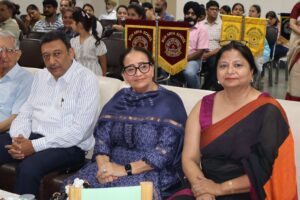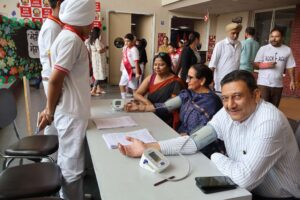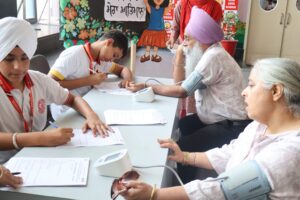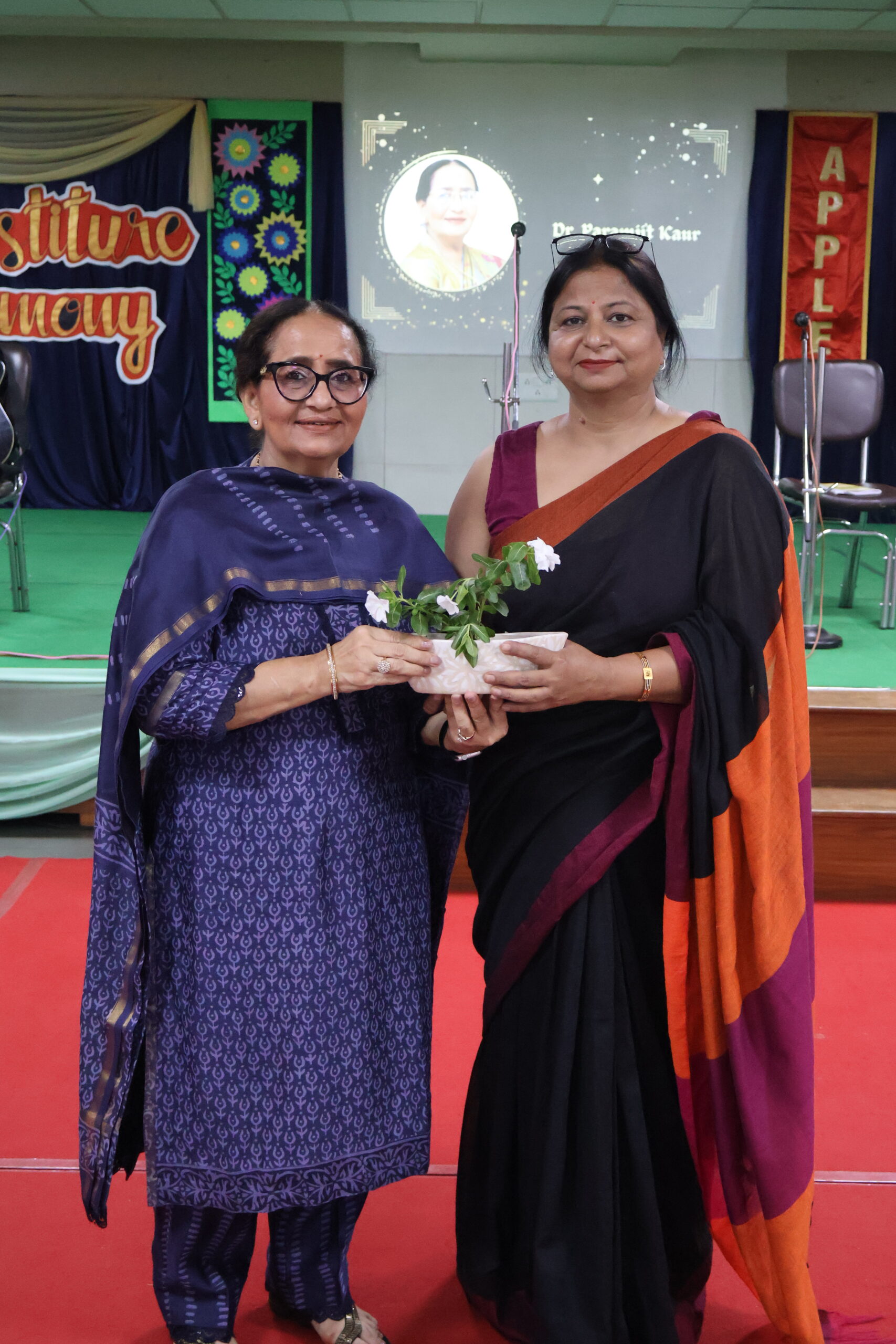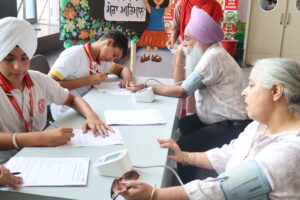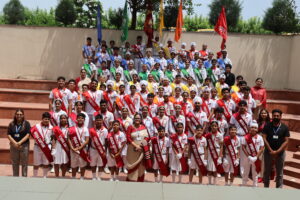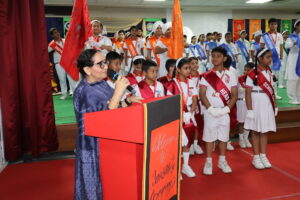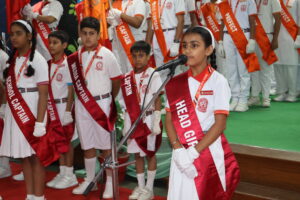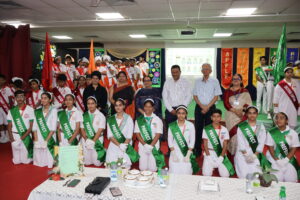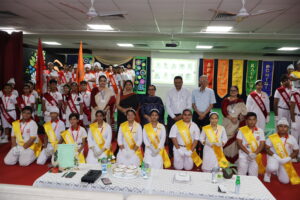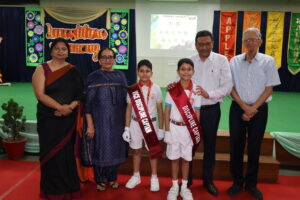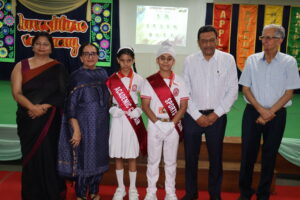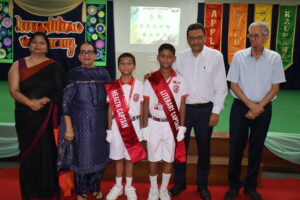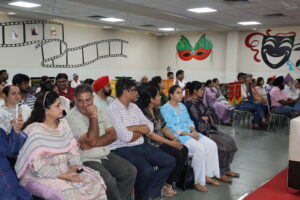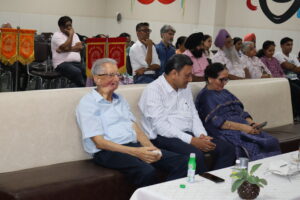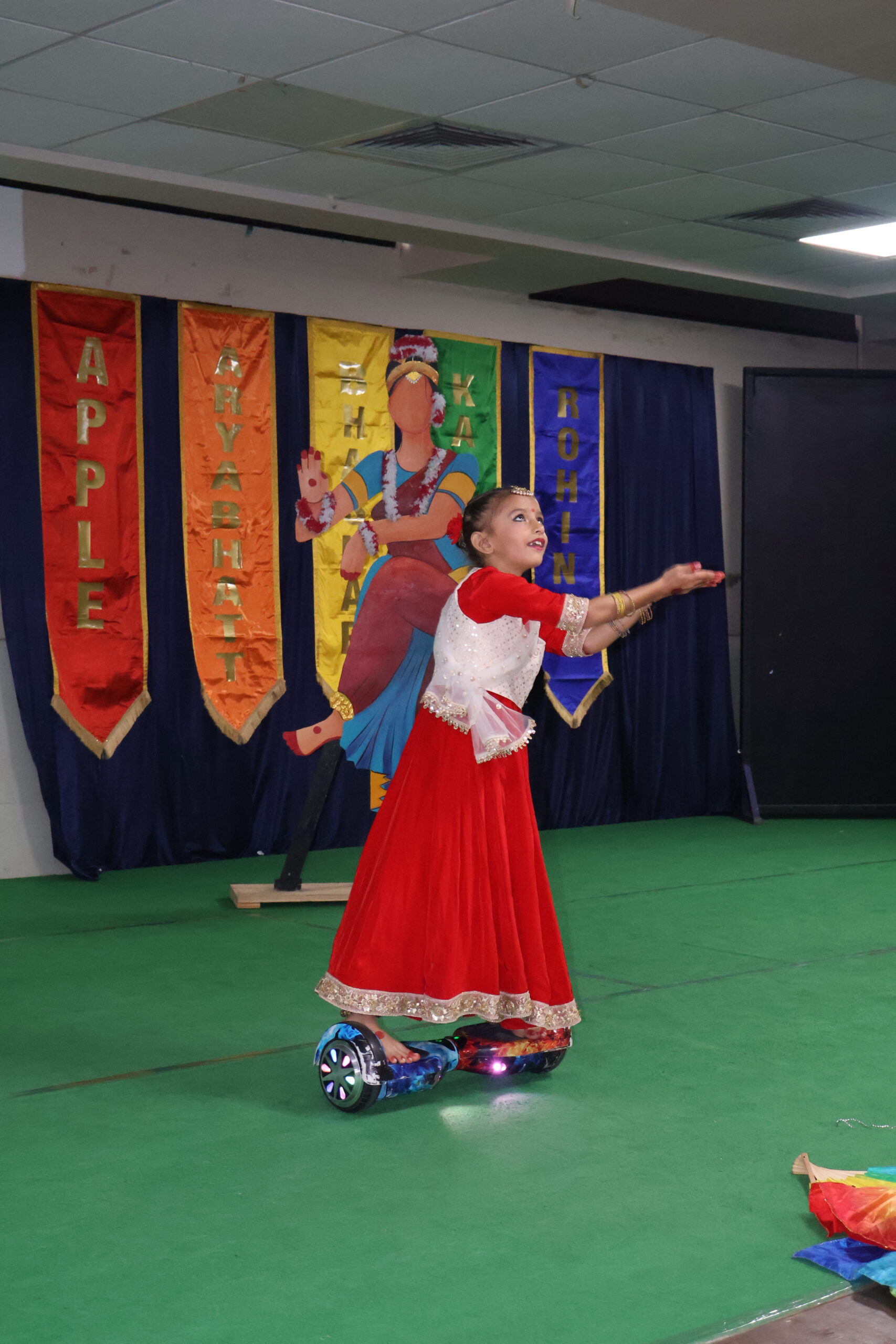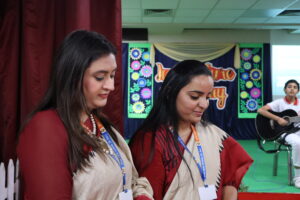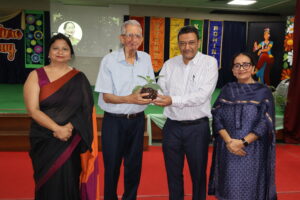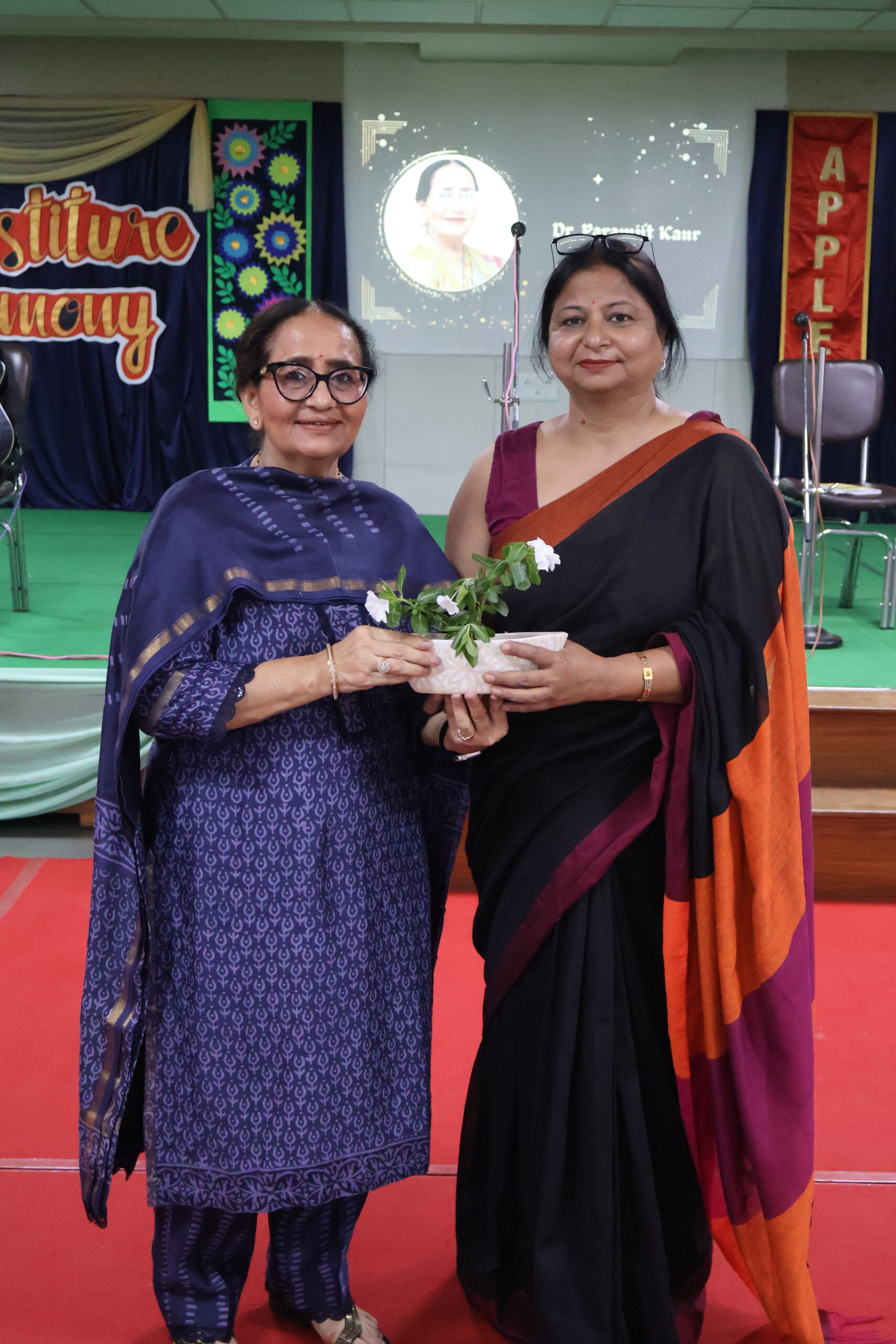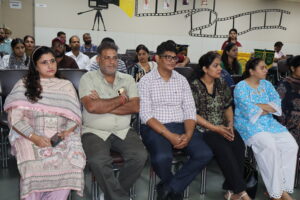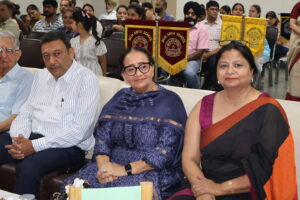Author: admin
Morning Assembly(Nur.-II)
- Post author By admin
- Post date August 1, 2025
- No Comments on Morning Assembly(Nur.-II)
Morning Assembly(Nur.-II)
100 Day Celebration(Nur.)(17-09-2025)
- Post author By admin
- Post date August 1, 2025
- No Comments on 100 Day Celebration(Nur.)(17-09-2025)
100 Day Celebration(Nur.)(17-09-2025)
investiture ceremony 25-26
- Post author By admin
- Post date July 30, 2025
- No Comments on investiture ceremony 25-26
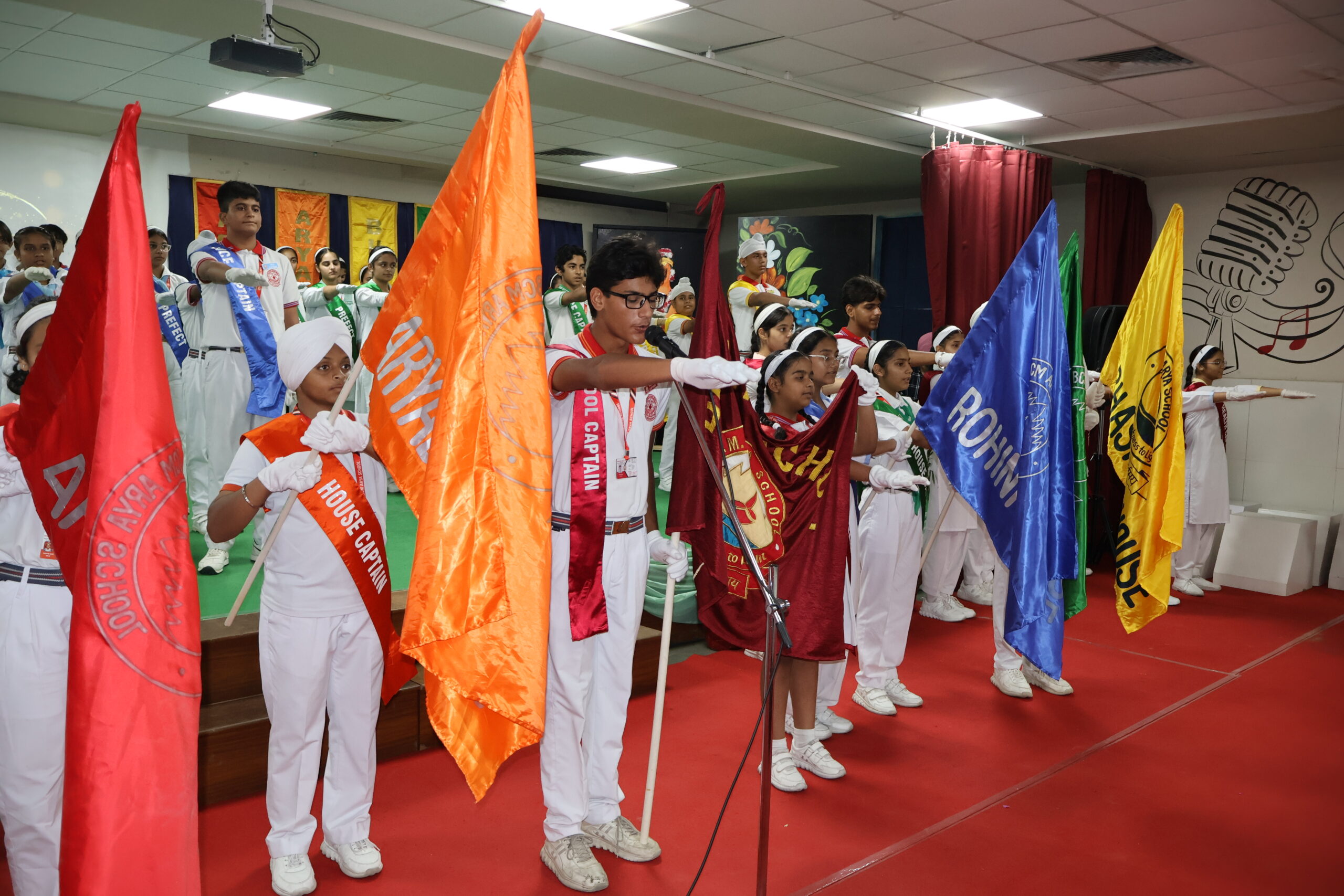
Staying Safe This Rainy Season
- Post author By admin
- Post date July 2, 2025
- No Comments on Staying Safe This Rainy Season


Principal Blog
Staying Safe This Rainy Season
Mrs. Kritika Seth

Staying Safe This Rainy Season
As we welcome the monsoon season with its refreshing showers and much-needed respite from the summer heat, we must also stay alert to the health risks that often accompany the rains. The rainy season is a time when several infections and diseases spread rapidly due to stagnant water, increased humidity, and fluctuating temperatures.
At BCM Arya School, the well-being of our students and staff is our top priority. Hence, it is essential that we work together to stay informed, take preventive measures, and ensure a healthy learning environment for all.
Common Infections During Rainy Season
1. *Viral Fever & Cold* – Sudden weather changes can lead to flu-like symptoms, cold, and sore throat.
Precautionary Measures for Students, Teachers, and Parents
2. *Dengue & Malaria* – Caused by mosquito bites due to water stagnation.
3. *Typhoid & Cholera* – Spread through contaminated water and unhygienic food.
4. *Skin Infections* – Fungal infections are common due to damp clothing and high humidity.
5. *Food Poisoning* – Increased risk due to spoiled or uncovered food.For Students:
* Carry an umbrella or raincoat daily.
* Keep your feet dry – wear waterproof footwear.
* Wash hands regularly with soap or sanitizer.
* Avoid junk food, especially from roadside vendors.
* Drink only clean, filtered or boiled water.
* Inform the class teacher if you feel unwell.For Teachers:
* Keep classrooms well-ventilated and dry.
* Encourage students to maintain personal hygiene.
* Watch for symptoms like fever or fatigue among students and report immediately.
* Ensure that drinking water sources in school are clean and safe.For Parents:
* Dress your child in clean, dry clothes daily.
* Boost immunity with nutritious home-cooked meals (soups, citrus fruits, turmeric milk).
* Avoid sending your child to school if they are sick.
* Keep your surroundings clean to avoid mosquito breeding.
* Use mosquito nets or repellents, especially at night.

School Initiatives
At BCM Arya School, we are taking the following steps to ensure a safe and healthy environment:
* Regular sanitization of classrooms and washrooms.
* Clean drinking water
* Medical checkups and health awareness drives.
* No tolerance policy for uncovered food and water stagnation.Let’s Work Together
The rains bring joy, beauty, and life — but only if we stay cautious. I urge all students, parents, and teachers to be proactive in protecting themselves and those around them. Let’s stay informed, stay safe, and enjoy the monsoon season with good health and high spirits!
Warm regards,
Kritika Seth
Principal, BCM Arya School
Revision Test Plan Starts(VI-XI)
- Post author By admin
- Post date June 5, 2025
- No Comments on Revision Test Plan Starts(VI-XI)
Revision Test Plan Starts(VI-XI)(Q.C.C Meeting)
Our soldiers are fighting for us
- Post author By admin
- Post date June 3, 2025
- No Comments on Our soldiers are fighting for us

Director Blogs
We often say, “Our soldiers are fighting for us.”
Dr. Paramjit Kaur Director

Dear All,
We often say, “Our soldiers are fighting for us.”
But do we ever pause to ask—Are we truly worthy of the protection our soldiers give us? This isn’t a question meant to provoke guilt. It’s a question meant to awaken us.
True patriotism doesn’t live in gestures. It lives in our conduct—quietly, daily, truthfully.
Because when we break traffic rules, cheat in exams, bribe our way out of trouble, or remain silent in the face of injustice—what are we doing, really? We are quietly undoing the very values a soldier swears to protect.
Soldiers don’t just wear a uniform. They fight not because they hate what is in front of them, but because they love what is behind them. They carry the weight of a nation on their shoulders.
True patriotism begins in the everyday—in the classroom, at traffic signals, in offices, on social media, and inside our homes.
It begins when we:
- Stop giving and taking bribes,
- Respect women and all fellow citizens,
- Raise our children to be empathetic and honest,
- Stand up for what’s right—even if it’s uncomfortable.
- Pay our taxes.
- Stay honest even when no one’s watching.
- Uplift those around us.
Our soldiers protect our borders. But what about the internal borders—of ethics, empathy, and unity? Are we guarding those?
This isn’t a call for grand gestures or dramatic sacrifice. It’s a call for small, conscious acts of patriotism.
Because in the end, the question isn’t whether our soldiers will protect us.
They always will. The real question is—can we become a nation worth protecting?
Save Childhood from Screens
- Post author By admin
- Post date June 3, 2025
- No Comments on Save Childhood from Screens


Principal Blog
The Digital Drug: How Mobile Phones Are Stealing Our Children’s Childhood
Mrs. Kritika Seth

This blog is especially for those parents who hand over mobile phones to their young children just to keep tem busy. These are parents who do not have time for their children. When the children cry, become restless, these parents think that handing over a mobile phone will help the child settle down.
But latest study has revealed that children up to the age of 6 who frequently use mobile phones, suffer from weak memory as they grow older and are more likely to face several mental disorders.
We request all parents with young children to pay attention to this and avoid making the mistake of handing over mobile phones to their kids just to pacify them — a mistake most parents are unknowingly making.
This study has been published in a book titled Understanding Your Child’s Brain, and it highlights three major findings:
- Children aged 6 years or below who play with or use mobile phones tend to have significantly weaker memory compared to others. These children also become more irritable and, as they grow older, face problems like obesity, depression, anxiety, and Attention Deficit Disorder (ADD). Children with ADD struggle to concentrate or focus on one thing. Their attention span becomes very short, and their minds constantly wander. They get angry over minor things.
- The study states that parents are primarily responsible for such mental conditions in children. Many parents hand over their phones to distract or calm their kids, thinking it will keep them quiet. They think letting the child watch videos or play games on a mobile phone will keep them entertained and help them eat their food quietly. In doing so, the phone ends up in the child’s hands, and parents feel satisfied that their child is now calm and no longer crying or demanding attention.
- But in reality, the addiction to mobile phones is just like an actual drug for small children — similar to alcohol or a sedative. If I were to ask you: when your child is crying or restless, would you ever give them drugs or sleeping pills? Most of you would say, “Never!” But when you give a mobile phone to your child to calm them down, it’s as if you’re giving them a digital drug — and this new drug is the mobile phone. Soon the child becomes addicted to it and cannot sleep or stay calm without it.
While alcohol may damage the liver, watching videos or playing games on mobile phones harms the brain. These children grow up unable to differentiate between right and wrong. Their concentration levels drop significantly. They struggle to focus in school, later in college, and even in their careers.A recent survey in India revealed that 7 out of 10 parents admitted that their child uses a mobile phone for 4 to 5 hours a day. A study in the US compares giving a phone to a small child to giving an 800cc racing bike to a toddler — dangerous and inappropriate.
So, parents who believe that giving their children a mobile phone will keep them calm are actually pushing their children into long-term mental problems. The study also says that online gaming significantly affects the intellectual development of children under 18. These children begin to normalize violence, and their behavior becomes aggressive.
This is exactly what’s happening with many children in India today. Think about your own child’s behavior — has it become more aggressive in the past few years? Compared to the past, today’s children tend to be more defiant, less obedient to their parents, and lack focus.
Many parents complain that kids today don’t listen and rebel at the smallest provocation. In India today, children are learning to use mobile phones before they learn how to walk. And this addiction only goes away when the device is turned off.
A survey says that children under 6 years old in India have an average screen time of 55 minutes per day — nearly one hour — even though many of them haven’t even started walking yet. This is happening because most Indian parents are unaware of the dangers of mobile phones. They don’t realize what they’re handing over to their children, and by the time the child grows up, the phone may have already ruined their personality.
In earlier times, parents used to dedicate a lot of time to their children — massaging their bodies, caring for their hair, and even gently shaping their features. They spent a great deal of time caring for their child’s physical development. But that has changed.

Nowadays, many parents feel proud when their children use mobile phones. They boast to guests that their toddler knows how to use YouTube, Instagram, and all the features of a smartphone. They think this is a sign of intelligence — that their child is smart because they can use a mobile phone. They think it’s talent when their child dances for the camera or creates videos.
That’s why many young children — even 5 or 6 years old — are now making videos, uploading content on Instagram and YouTube. This leads to another problem: the pressure to gain likes, shares, and followers. These children become restless and obsessed with their online performance.
You can now find countless videos on social media where children use inappropriate language, but instead of being concerned, people laugh and celebrate, thinking the child is “mature” or “talented” for talking like adults.
And it’s not just small children — even older kids are affected. About 41% of India’s population is under the age of 20. Think about that — 41% of India’s population is at risk. These children are being deeply impacted by mobile phone addiction and online gaming.
A 2020 survey found that 65% of children under 20 admitted they were willing to skip meals and sleep just to continue playing online games. Some even stole money from their parents to do so.
There was a time when kids came home from school and played outdoors — games like gilli-danda, hide and seek, kho-kho, and kabaddi. But things changed, and outdoor activities were limited to school hours. Now, children’s only playground is their phone, laptop, or computer.
Previously, parents would spend a lot of time caring for their children. That’s disappearing — replaced by screens.
It is my humble request to all the parents to take this issue as very serious upcoming disese for our generation.
Let’s wor together and find solution of this disease.
- Few Suggestions:
- Spend quality time with your children.
- Limit mobile usage time
- Limit the content and channels they all watching.
- Connect mobile to your smart TV so that you may come to know what your child is watching.
- Go for outings with your family.
- Play physical outdoor games with them and holiday.
- Share moral bed time stories.
- Train them to use mobile for educations purpose only.
“Don’t let a small screen shrink you big dreams, Say No to mobile, say yes to life.”
Think Good, Live Better
- Post author By admin
- Post date May 3, 2025
- No Comments on Think Good, Live Better

Director Blogs
Think Good, Live Better
Dr. Paramjit Kaur Director

Dear All,
It’s simple, yet so powerful:
Good thoughts lead to good actions. Good actions become habits. And habits, build our destiny.
We often hear people say, “Life is unfair” or “Maybe I’m just unlucky.” But if we quietly sit with ourselves and reflect, we’ll realize — our life is a mirror of the thoughts we nurture daily.
When we wake up in the morning with hope, with gratitude, with a tiny prayer in our heart — doesn’t the day feel lighter, happier? And on days when we wake up irritated, rushed, and complaining — somehow, the day drags like a burden.
It all begins inside our mind. A thought. A simple, silent thought.
You don’t have to change everything overnight. Just start with one good thought everyday: “I can learn.” “I can heal.” “I can begin again.” “I can be kind.” ”I can make a difference.” Good thoughts are not just thoughts —they are seeds. And you, are the gardener of your own life. Plant a good thought. Water it with action. Let it grow into a habit. And trust that it will eventually bloom into a beautiful destiny.
We find shining and inspiring examples of how powerful thoughts can transform lives.
Dr. A.P.J. Abdul Kalam — the Missile Man of India — was born into a humble family in Rameswaram. As a child, he could have thought, “I am too poor to dream big.” But instead, he chose to think differently. His mind whispered, “Why not me?” That one powerful thought fuelled a lifetime of learning, invention, and service to the nation. Today, we remember him not just for his achievements, but for the goodness and humility he carried throughout his journey.

Mary Kom, the boxing legend, came from a small village in Manipur. She had every reason to doubt herself — limited resources, societal expectations, physical hardships. But she fed her mind with powerful thoughts like “I can fight. I can win.” And she didn’t just win medals — she won respect for women across the country.
Amitabh Bachchan, one of India’s most iconic actors, once faced a career slump so severe that he was almost bankrupt. Instead of surrendering to despair, he chose to believe, “I can rebuild.” That thought pushed him back into television, films, and business — and he came back stronger than ever, becoming a living symbol of resilience and hope.
Destiny is not written in the stars. It is written in the secret spaces of our mind — in the quiet thoughts we choose every single day.
Believe in the magic of your own mind. One good thought can change a day. A habit of good thoughts can change a lifetime.
So, start today: Think good, live better.








